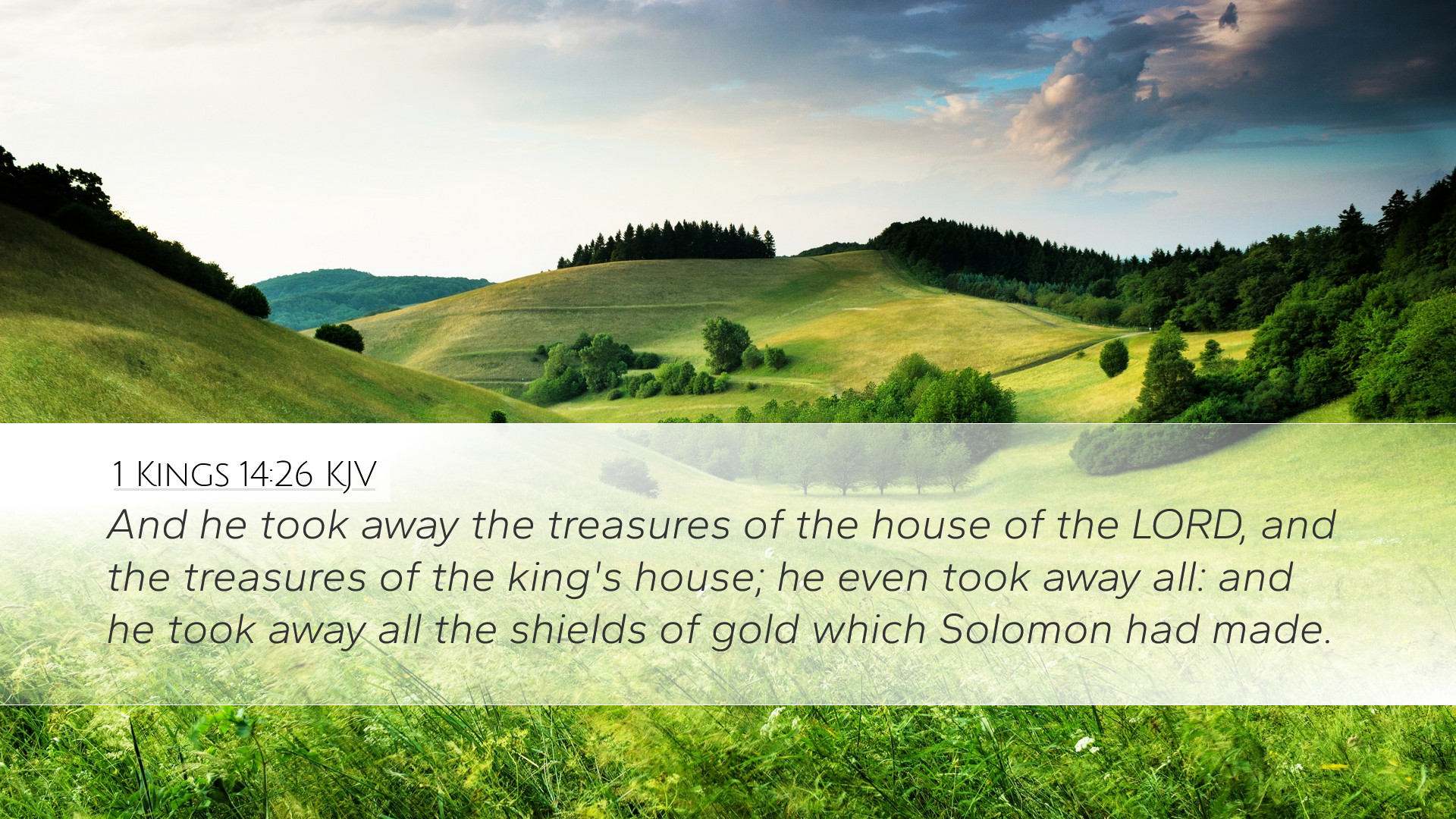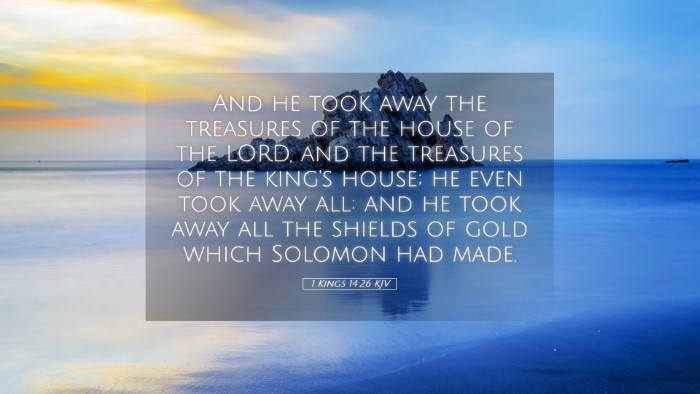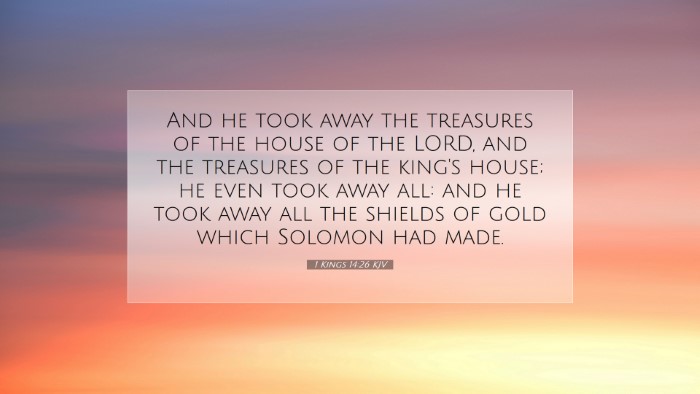Commentary on 1 Kings 14:26
Bible Verse: "And he took away the treasures of the house of the Lord, and the treasures of the king's house; he even took away all: and he took away the shields of gold which Solomon had made." (1 Kings 14:26, KJV)
Introduction
This verse encapsulates a moment of significant turmoil in the history of Israel during the reign of King Rehoboam and the invasion of Shishak, the king of Egypt. The focus here is on the stripping of both sacred and royal treasures, symbolizing a deeper spiritual and political decline.
Exegesis and Historical Context
According to Albert Barnes, this event occurs during the fifth year of Rehoboam's reign. The treasures taken were not just material possessions but represented the glory of Israel. Shishak’s invasion was a divine judgment reflecting Israel's moral and spiritual corruption.
Matthew Henry comments that the act of taking these treasures was indicative of a greater loss: the loss of divine favor and protection over Israel. This destruction aligns with the prophetic warnings given by individuals like Jeroboam, who led Israel into sin.
Theological Implications
The stripping of the treasures from both the temple and the royal palace serves as a vivid reminder of the fragility of human pride and strength. Adam Clarke notes that the shields of gold, a symbol of national pride and military strength during the time of Solomon, signified not only the wealth but the divine protection that was abandoned by the people of Israel through their idolatry.
Furthermore, the act of taking away gold was not an attack on mere physical wealth but spoke to the theological assertion that God’s presence and provision were being forfeited by the people's disobedience. The Israelites had turned to idols, and thus their protective status before God had diminished.
Spiritual Lessons for Today
- Rejection of Idolatry: This passage warns modern believers against the dangers of idolatry. When a society turns its back on God, it opens itself to spiritual degradation and loss.
- God’s Sovereignty: The invasion of Shishak was ordained by God as a means of judgment. This teaches that God is sovereign over nations and their rulers.
- Value of Treasure: The treasures taken represented both material wealth and spiritual blessings. Today, we ought to reflect on what treasures we value and ensure they align with God’s kingdom.
- Consequences of Disobedience: The loss of these items serves as a sobering reminder that there are consequences to straying from God’s commands. Faithfulness to God yields rewards that extend beyond this life.
Application to Church Leadership and Community
For pastors and church leaders, this passage serves as a challenging admonition to lead with integrity and to ensure that the church remains focused on God's glory rather than on earthly gains. Leaders are called to model faithfulness to God, avoiding the pitfalls of materialism and laxity that may lead to a decline in spiritual vigor.
Church communities are encouraged to engage in self-examination and repentance. Just as Israel faced consequences for their sin, congregations today must evaluate their standing before God and ensure that they do not prioritize wealth or temporal power over a genuine relationship with Him.
Conclusion
In 1 Kings 14:26, we find not just a historical account but a profound theological message that speaks volumes about the nature of God, the consequences of sin, and the nature of true wealth. This commentary illustrates the importance of remaining steadfast in faith, the risk of idolatry, and the necessity of discerning the treasures that truly matter.
As we reflect on this verse, may we strive to keep God as our ultimate treasure, ensuring that we seek first His kingdom and righteousness above all else.


